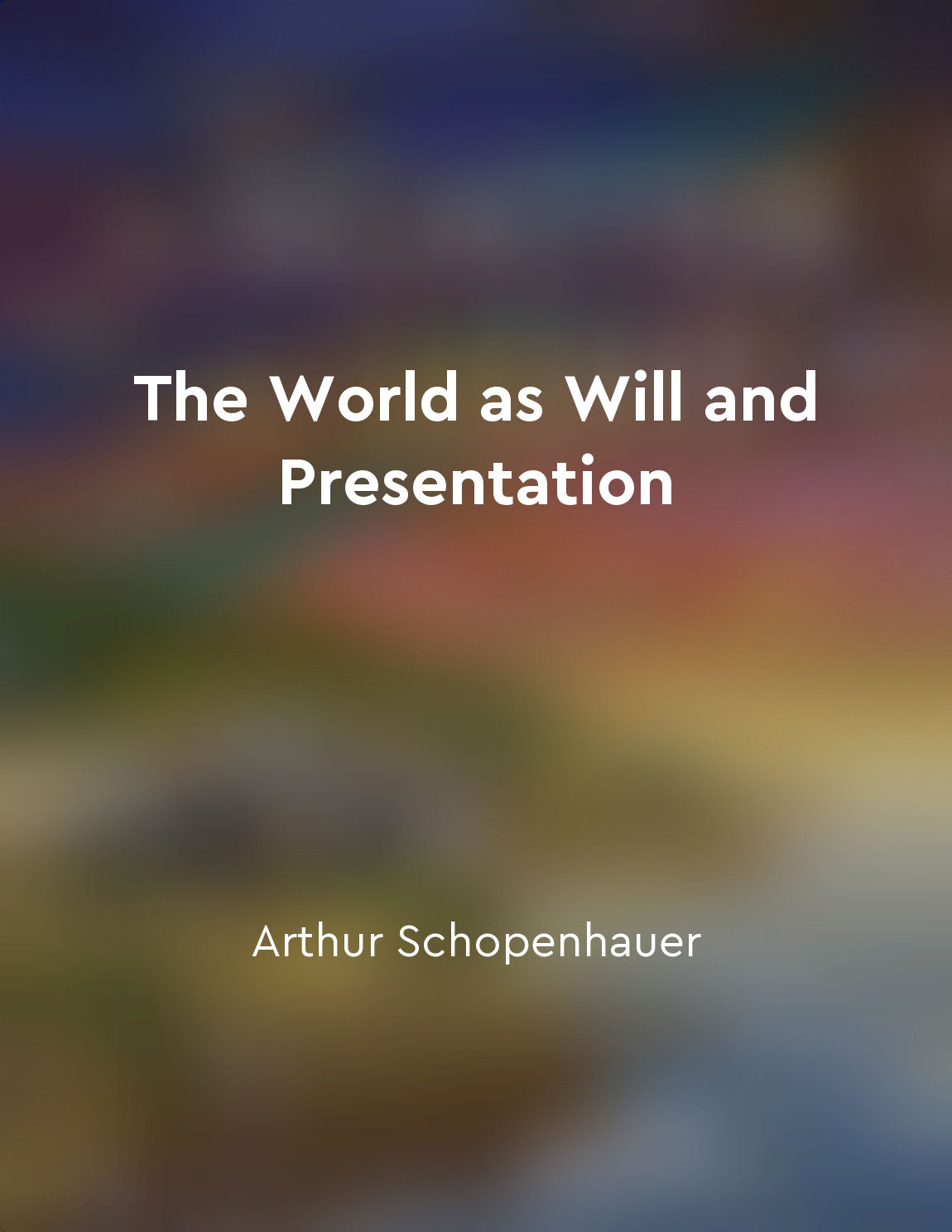The fleeting nature of pleasure and happiness from "summary" of The World as Will and Presentation by Arthur Schopenhauer,David Carus,Richard E. Aquila
Schopenhauer delves into the idea that pleasure and happiness are transient in nature. He argues that our pursuit of pleasure is often in vain, as it is fleeting and temporary. We may experience moments of joy and satisfaction, but these feelings do not last. This impermanence of pleasure leads to a constant cycle of seeking new sources of happiness, only to be disappointed when they too fade away. Furthermore, Schopenhauer suggests that our desires are insatiable, and no amount of pleasure can truly satisfy us. We are always left wanting more, trapped in a never-ending quest for happiness that is ultimately unattainable. This constant craving for pleasure only serves to reinforce its fleeting nature, as we are always left wanting more. In his exploration of the fleeting nature of pleasure and happiness, Schopenhauer highlights the futility of our pursuit of temporary pleasures. He argues that true happiness lies not in the pursuit of pleasure, but in the renunciation of desire. By letting go of our endless cravings for pleasure, we can free ourselves from the cycle of disappointment and find a more lasting form of contentment.- Schopenhauer's examination of the transient nature of pleasure and happiness serves as a cautionary tale against the relentless pursuit of fleeting satisfaction. He encourages us to look beyond temporary pleasures and seek a more profound sense of fulfillment that is not dependent on external sources. This introspective approach to happiness offers a new perspective on the nature of pleasure and urges us to reconsider our priorities in the pursuit of true contentment.


